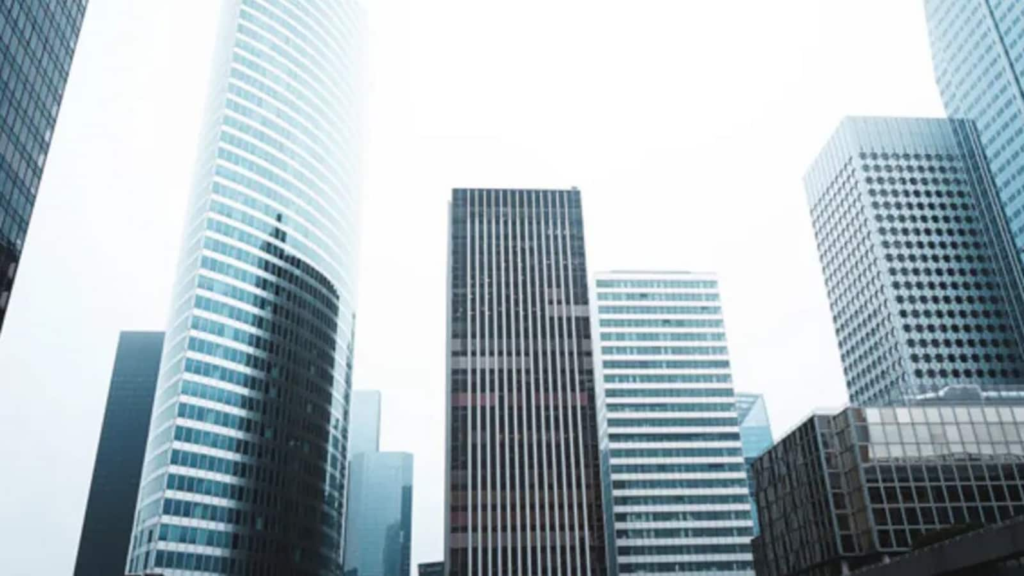(Bloomberg) — The alarm reached Jon Gray on the 44th floor, in his C-suite office high above Park Avenue: An active shooter was in the building.
In the lobby below, a gunman had opened fire, killing a uniformed police officer and two others who worked in the office tower. Then, the shooter fired at the turnstile, boarded an elevator and headed up.
Gray, billionaire president of Blackstone Inc., saw his phone light up again and again and again, as security alerts flashed and he fielded calls from associates trying to process what was happening over the next few hours.
Employees hid in bathroom stalls and utility closets, and piled couches, desks and stools into doorways. Photos of the makeshift barricades quickly circulated on social media, illustrating the chaos that had overtaken the normally placid office environment.
“Brutal,” Gray recalled less than 24 hours later, tearing up in an interview.
What unfolded Monday inside 345 Park Avenue, in the heart of Midtown Manhattan, has quickly assumed sobering dimensions: It now stands as the worst mass shooting New York City has witnessed in a quarter century.
The four people who were killed — a police officer guarding the lobby, a rising star at Blackstone, a private security guard and an associate at a real estate management company — seemed to be drawn from all walks of New York life.
Even as office workers hurried past the scene Tuesday — jackets off in the oppressive July heat, the American flag outside at half-mast, shattered glass near the building’s entrance — the city’s collective shock was palpable.
Blackstone, founded in 1985, has grown from a small partnership into one of the world’s largest asset managers. It has traversed periods of growth and turmoil, including the global financial crisis of 2008 and the coronavirus pandemic. But in a note to employees Tuesday, Gray and Chief Executive Officer Steve Schwarzman called Monday “the worst day in the firm’s history.”
One of Blackstone’s brightest stars, Wesley LePatner, was among the dead, shot in the lobby as she was about to meet a colleague for a drink. Like grieving family members and friends of the three other victims, Blackstone employees are still trying to come to grips with what began around 6:30 p.m. and, for many, didn’t end until hours later.
At the height of the evening rush, a man double-parked his BMW on Park Avenue, calmly strode across a public plaza with an assault-style rifle in his hand, stepped into the lobby and opened fire. Glass shattered in the lobby and bodies lay still. Office workers sprinted out of the building or scrambled for cover.
(Police said the gunman, identified as Shane Tamura of Las Vegas, was looking for the headquarters of the NFL professional football league, which is located in the same building; Tamura ended up at Rudin Management on the 33rd floor where he died of a self-inflicted gunshot.)
Panic began to spread through 345 Park, located near the gilded Waldorf-Astoria hotel, the new, soaring headquarters of JPMorgan Chase & Co. and up the grand boulevard from the Beaux Arts Grand Central Terminal. Other firms, including consulting firm KPMG and landlord Rudin, also call the building home.
Few knew yet if anyone had been hurt or killed. Many Blackstone employees were still at their desks and began calling and texting colleagues to try to find out what was going on. One heard the initial burst of fire from the gunman’s assault rifle and promptly alerted colleagues via Microsoft Teams chat to take cover.
That saved a lot of lives, one Blackstone employee said.
By 7 p.m., a half-hour after Tamura first stepped into the lobby, police officers were shepherding some employees out of 345 Park, workers said. One employee recalled being on a Zoom call and opening the door to discover colleagues with their hands raised over their heads and several police officers with guns drawn. The police hustled the group into the elevator and down to safety.
Floor by floor, they were led out into the July evening, leaving their names and phone numbers for police to scribble on paper. Some were too petrified to leave their hiding spots at first. Others would only leave around 10 p.m., as police continued to sweep each floor.
By about 11 p.m., when Blackstone’s offices were fully cleared out, several had learned that LePatner was dead. Gray was among executives who went to Bellevue Hospital to offer support to LePatner’s family.
“The focus now is the loss of Wesley and dealing with the trauma people experienced last night,” Gray said. Just that day, Gray had been in Blackstone’s Monday meetings with her.
Late Tuesday morning, Gray and Schwarzman addressed Blackstone employees around the world via Zoom. The message: Everyone is hurting and it’s normal after such loss. Schwarzman urged employees to support each other.
Blackstone is reviewing its security, and many employees praised how their bosses have handled the tragedy. Rudin had already bolstered security in response to crime in the area, and then the UnitedHealthcare CEO shooting, stationing more guards. Many employees expect tighter security going forward. Blackstone’s offices will remain closed this week, and it’s unclear when it will reopen.
It all happened so fast, many of them said. Several added that they might’ve just as easily been among those who didn’t make it home.
–With assistance from David Scheer.
More stories like this are available on bloomberg.com


